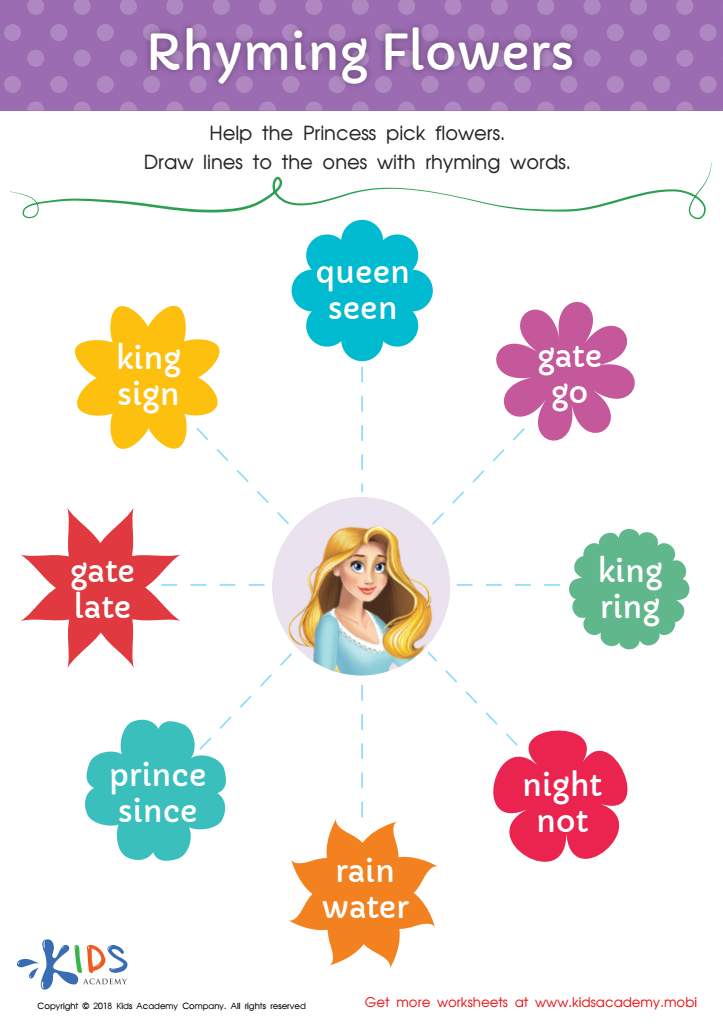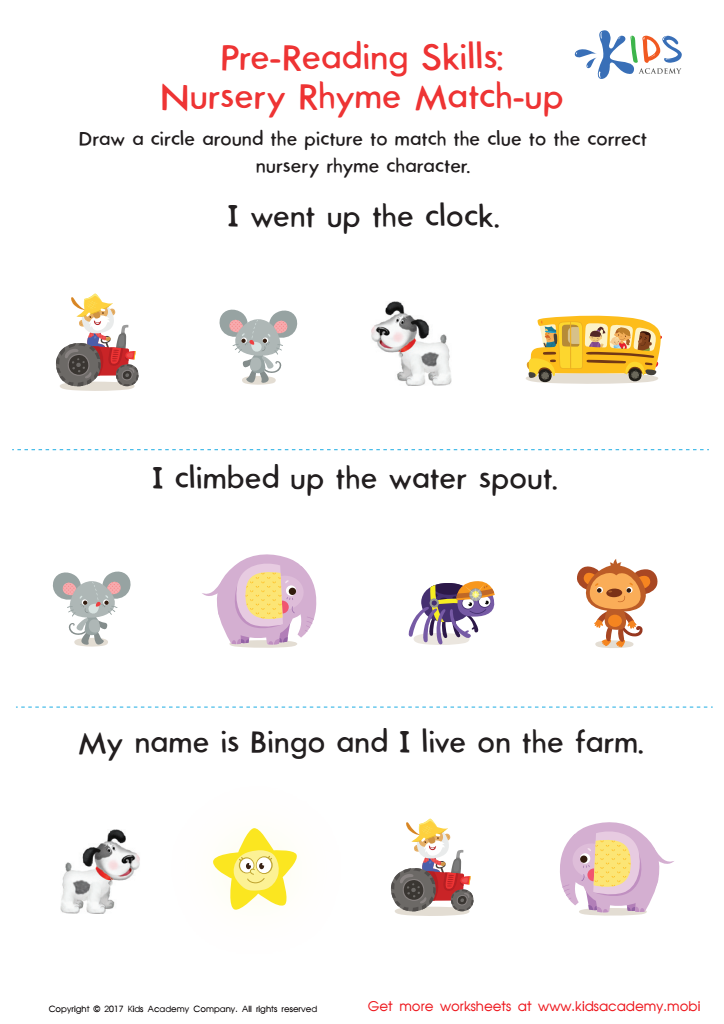Rhyme recognition Rhyming Worksheets for Ages 5-6
3 filtered results
-
From - To
Enhance your child's phonemic awareness with our engaging Rhyme Recognition Worksheets designed for ages 5 to 6! These fun, interactive worksheets help young learners identify and match rhyming words, fostering essential language skills through imagination and creativity. By incorporating vibrant images and playful activities, children will enjoy the learning process while boosting their understanding of sound patterns and vocabulary. Perfect for homeschooling or supplemental practice in the classroom, our resources gently encourage reading readiness and confidence. Explore our range of rhyming worksheets today and watch your child's literacy skills flourish! Enjoy the joy of learning with Kids Academy!


Baa Baa Black Sheep Printable


Rhyming Flowers Worksheet


Nursery Rhyme Match–Up Worksheet
Rhyme recognition is a crucial literacy skill for children aged 5-6, as it lays the foundation for future reading and writing abilities. At this age, children are developing phonemic awareness—the ability to identify and manipulate sounds in words. Recognizing rhymes helps them understand that words are made up of smaller sound units, which is essential for decoding words when reading.
Moreover, engaging with rhymes enhances vocabulary development and linguistic comprehension. When children learn rhymes, they are exposed to new words and language patterns, fostering both oral and written communication skills. Rhyming words also encourage memory retention due to their rhythmic and repetitive nature, making learning more enjoyable and effective.
In addition, rhyming activities such as songs, nursery rhymes, and games can promote social interaction and enhance listening skills, which are vital for overall language development. Through these engaging activities, children not only learn to recognize and produce rhymes, but also cultivate a love for language and reading.
For parents and teachers, understanding the importance of rhyme recognition enables them to create supportive learning environments that nurture early literacy and communication skills, significantly contributing to a child's academic success and confidence in language use.

 Assign to My Students
Assign to My Students


















